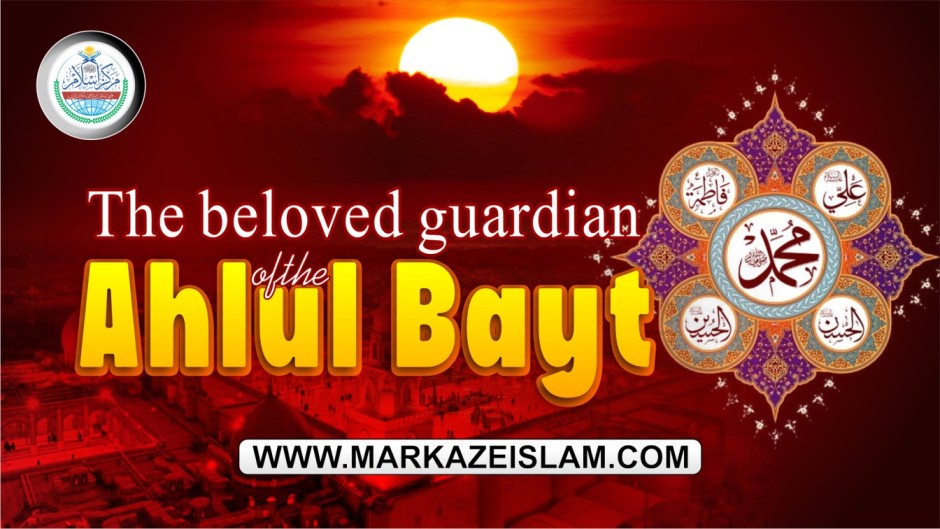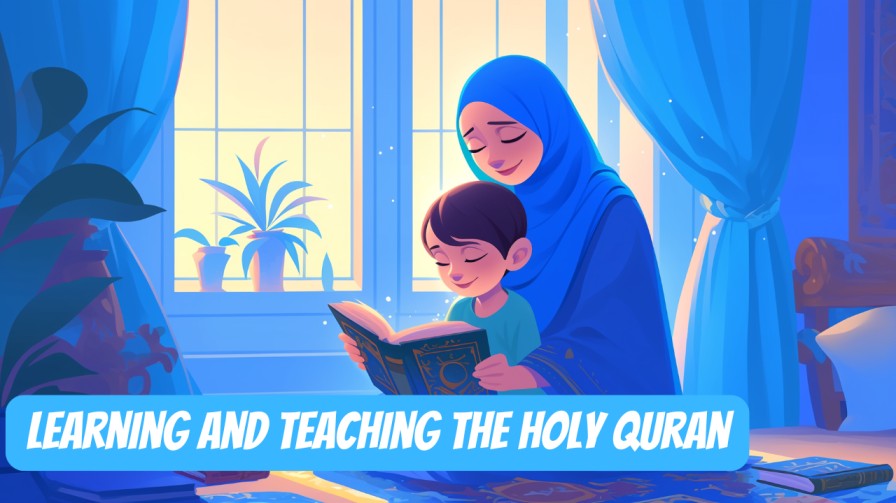When the people of Kufa began sending letters continuously to Imam Hussain (may Allah be pleased with him), a spark of hope ignited in my heart too—perhaps now, amidst the darkness of tyranny, the light of truth was about to shine. But the farsighted Companion, Abdullah ibn Abbas (may Allah be pleased with him), wisely advised the Imam that it would not be prudent to proceed without directly assessing the situation. Thus, Imam Hussain (may Allah be pleased with him) dispatched Muslim ibn Aqeel (may Allah be pleased with him) as his representative.
Table of Contents
His arrival in Kufa was met with an extraordinary welcome. Thousands pledged allegiance and expressed their loyalty to the Imam. Hazrat Muslim (may Allah be pleased with him) wrote a hopeful letter that brought reassurance and confidence to the Imam’s heart. In those moments, it felt as if truth had finally found its devoted followers. Yet, time had not yet unveiled all its secrets.
If you haven’t read the second part of our blog, you can access the previous section through the link below… click here.
The Martyrdom of Hazrat Muslim (RA) and Hazrat Hani (RA)
Historians have narrated the account of the arrest of Hazrat Muslim (RA) and Hazrat Hani ibn Urwah (RA) in the following manner:
When Hazrat Muslim (RA) stood to offer the Maghrib prayer in the mosque of Kufa, around five hundred people were with him at the time. But no sooner had he concluded the prayer with salaam, he found himself completely surrounded by the enemy—alone. There was neither a companion left nor a sympathizer. His heart was wounded, and his soul tormented by the treachery of the Kufans. Wherever he turned, there was no path to safety, and wherever he looked, death stared him in the face.
Eventually, he sought refuge in the home of Hazrat Hani ibn Urwah (RA). When ‘Ubaydullah ibn Ziyad came to know of this, he summoned Hazrat Hani (RA) and inquired about Hazrat Muslim (RA). It is narrated that Hazrat Hani replied, “Yes, tonight Hazrat Muslim (RA) is sheltered in my house.” According to Tabari, ‘Ubaydullah—may Allah’s curse be upon him—asked Hazrat Hani, “Is Muslim ibn Aqil hiding in your house?” Hazrat Hani denied it, so ‘Ubaydullah said, “Swear an oath.”
Hazrat Hani swore by Allah, yet ‘Ubaydullah had him arrested and thrown into prison. He then sent his men to Hazrat Hani’s house, who captured Hazrat Muslim (RA) and brought him before ‘Ubaydullah. He imprisoned both Hazrat Muslim (RA) and Hazrat Hani (RA).
Meanwhile, more than fifty thousand people had gathered. Despite this, ‘Ubaydullah ordered that the necks of Hazrat Muslim and Hazrat Hani (RA) be struck and their bodies thrown from the fortress.
According to Tārīkh Ibn Abī Ḥātim and other sources, Hazrat Hani (RA) was killed before Hazrat Muslim (RA). The event unfolded as follows:
When ‘Ubaydullah ibn Ziyad executed Hazrat Hani (RA) to make an example of him before the people, and Hazrat Muslim (RA) received news of it, he marched forth with nearly a thousand men to fight ‘Ubaydullah. But when Ibn Ziyad saw the masses and the strength of the army, he became afraid and said, “A strategic plan is needed so that, despite being few in number, we remain safe.” Thus, he decided to lock himself inside the fortress.
On the other hand, when Hazrat Muslim ibn Aqil reached the fortress, only about three hundred people remained with him. Seeing this, he became extremely distressed and looked around in bewilderment and despair. Yet people continued to abandon him, until only ten or twelve remained. At that moment, he cried out involuntarily:
“O people! You wrote more than a hundred and fifty letters to invite me here, and now you abandon me to the enemies and leave me alone?”
Even those last twelve had not yet parted from him when they, too, left. Meanwhile, Ibn Ziyad sat at the fortress window, watching the scene like a spectacle, until the darkness of night enveloped the sky and all the surrounding lands.
Hazrat Muslim (RA) as the Guest of an Elderly Woman and Her Son’s Betrayal
At that time, Hazrat Muslim (RA) stood alone at the doorstep of the governor ‘Ubaydullah ibn Ziyad’s residence, when he saw the door of an elderly woman named Tawʿah. He approached her and asked for water. She gave him water and then inquired about his lineage. He replied:
“I am a captive, grief-stricken, and a stranger in this land. I am a dimming lamp from the ruined household of Prophethood. My name is Muslim ibn Aqil (RA), the cousin of Hazrat Imam Hasan (RA). If you grant me shelter for this night, may Allah, in return, bless you with Paradise.”
This noble and virtuous woman treated him with great reverence. She brought him into her home, provided food and drink, and placed him safely in a separate room.
In the evening, her son returned home late and found his mother attentively serving an honored guest. Surprised, he asked:
“What is the reason for such joy, and what is the cause of this delight?”
She replied:
“O my son! Even if, in joy, I were to raise the crown of honor to the heavens and become breathless with happiness, it would be well deserved. Today, Hazrat Muslim ibn Aqil (RA) has graced my dark and humble home, turning it into the envy of blooming gardens. Know, my son, I have hidden him here considering it a means of salvation in the Hereafter.”
The Encounter of Hazrat Muslim ibn Aqil (RA)
The army of the wretched Ibn Ziyad was in pursuit of Hazrat Muslim (RA). After hearing everything, Tawʿah’s son went to sleep that night, but at the break of dawn, he went straight to Ibn Ziyad and revealed the whereabouts of Hazrat Muslim (RA). That accursed man immediately sent Muhammad ibn Ashʿath with eight soldiers to arrest Hazrat Muslim (RA).
As soon as they arrived, Muhammad ibn Ashʿath surrounded Tawʿah’s house. When Hazrat Muslim (RA) was informed, he rose from his prayer mat, armed his noble and delicate body with weapons of war, unsheathed his sword, and the Hashemite blood in his veins surged with passion. Like a lion, a gazelle, and a mighty elephant, he emerged from the house and attacked that vile group, sending most of them to Hell with a single assault. Wherever he advanced with his sword, five to ten soldiers would fall victim to his fearless blade. No one dared to confront him in close combat; instead, those faithless ones shot arrows from afar and hurled stones from rooftops and walls.
Eventually, Muhammad ibn Ashʿath and his men sought reconciliation, offering him peace and collectively swearing, “By God! Please sheathe your sword and accompany us to the governor’s palace.”
Thus, through this deception and trickery, he was brought out of the house and taken to Ibn Ziyad. Hazrat Muslim (RA), throughout the way, was engaged in reciting tahlil and takbir (declarations of the oneness and greatness of Allah). When he heard the town crier, he called for his two sons and, with tears in his eyes, embraced them.
Muhammad and Ibrahim, seeing the judge weeping, began to cry in sorrow as well and anxiously asked the reason. The judge then described in detail the martyrdom of Hazrat Muslim (RA) and how his blessed head was to be sent to Damascus. Upon hearing this, the two orphans—homeless, helpless, and abandoned—embraced one another and wept bitterly.
The judge then informed them about the town crier’s announcement and the group searching for them. He said:
“O orphaned children! O sons of a stranger in a foreign land! The best course of action now is for me to send you with the caravan bound for Madinah today.”
The Departure of the Young Princes to Madinah
When evening fell, the judge entrusted his son with the responsibility of escorting the two young princes and said:
“Son, a caravan is departing for Madinah al-Tayyibah from the Bab al-ʿIraqayn (Gate of the Two Iraqs). Go there and entrust these two princes to some pious and righteous man, and discreetly ensure they join the caravan.”
The judge’s elder son, named Asad, took both children along and brought them to the designated location. But as destiny would have it, the caravan had already departed, and only its rising dust could be seen in the distance. Asad said:
“O young princes, look! The caravan is right there ahead—hurry, run and catch up with it!”
Saying this, he turned back, but fate had decreed a different outcome.It was nighttime, the sky darkened with grief-laden clouds, and a heavy storm of sorrow surrounded them on all sides. In that overwhelming gloom, the two orphaned children lost their way.
Coincidentally, foot soldiers of the ill-fated Ibn Ziyad came upon them and took the two noble sons into custody, delivering them to the city’s chief constable. Without delay, he sent them to prison.That heartless man showed no compassion whatsoever for the helplessness and innocence of those orphans. With shameful cruelty and extreme callousness, he treated them with merciless indifference.
The Beloved Guardian of the Ahl al-Bayt
The warden of the prison was a pious Muslim named Mashkoor, a devoted lover of the purified Ahl al-Bayt. When he saw the two innocent, grief-stricken orphans, he embraced them with compassion, offered them comfort, and seated them beside him.

When night fell, he took both princes with him and brought them to the area of Qadisiyyah. There, he handed them his ring as a token and said:
“When you reach Qadisiyyah, search for my brother. He will ensure you reach Madinah al-Tayyibah safely and without fear.”
Then he turned inward while reciting the following heartfelt supplication:
اللَّهُمَّ احْكُمْ بَيْنَنَا وَبَيْنَ قَوْمِنَا، دَعَوْنَا فَكَذَّبُونَا، فَصَبَرْنَا عَلَىٰ مَا كَذَّبُونَا، ثُمَّ خَانُونَا۔
“O Allah! Judge between us and our people with justice. We called them to the truth, but they denied us. We patiently endured their rejection, yet in the end, it was they who summoned us—and they who betrayed us.”
As he recited this, he returned inside.
It was then that Sayyiduna Muslim ibn Aqil (may Allah be pleased with him) was martyred—his blessed neck struck beside a wall, and his body discarded before the people. Sayyiduna Hani ibn ‘Urwah (may Allah be pleased with him) was also martyred at that very time.Their noble heads were then sent to Yazid via Hani ibn Abi Habib and Zubayr ibn Arwa Qasimi. That accursed tyrant paraded the blessed heads of Sayyiduna Muslim and Sayyiduna Hani through the markets and streets like those of rebels—an act that caused a pang of shame to stir within the treacherous hearts of the people of Kufa.
إِنَّا لِلَّهِ وَإِنَّا إِلَيْهِ رَاجِعُونَ
Indeed, we belong to Allah, and indeed to Him we shall return.
Now, who would perform the funeral rites for the beheaded body of this estranged traveler on the path to the Hereafter?
Who would deliver the news of his martyrdom to Sayyiduna Imam Husayn (may Allah be pleased with him)?
And who in the city of Kufa would weep tears of grief over his loss?
By the Edge of the Spring
When daylight broke, a maid came to the spring carrying a water pitcher. Perhaps the reflections of those two delicate flowers from the garden of martyrdom were visible in the water. She stood in astonishment at the sight, and after searching here and there, she finally came near a tree—only to behold an extraordinary scene.
There, nestled within the hollow of the tree, sat two young princes. The radiance of good fortune gleamed from their luminous foreheads, and the glow of destiny shone brightly from their noble brows.
She gently asked,
“O young masters! Who are you? From what desolate garden have you bloomed as these sorrowed flowers?”
Hearing the kindness in her voice, the two innocent, dust-covered children revealed their entire story to her.
A Devoted Lover of Ahl al-Bayt
Upon hearing the name of Hazrat Muslim (may Allah be pleased with him), the maid was deeply shaken and rushed to her mistress, narrating the entire story. The lady of the house, who had already devoted her life and wealth for the love of the Ahl al-Bayt, exclaimed:
“Quickly go and bring those two dust-covered children here at once!”
The maid returned and, with heartfelt kindness and gentle words, brought the children along with her. The noble-hearted lady, overjoyed by their presence, immediately set the maid free, and personally took charge of serving the children with great happiness and devotion.
She cared for them like a compassionate mother, saying:
“O helpless and oppressed little ones, O pure sons of a noble lineage! Do not fear—I would not hesitate to give my life for your sake.”
She lovingly fed them with her own hands and laid them to rest comfortably in a separate room. That night, her husband—who had secretly been searching for the sons of Hazrat Muslim (may Allah be pleased with him)—returned home. Without eating dinner, he went straight to bed early.
The martyrdom of the sons of Hazrat Muslim bin Aqeel
When half the night had passed, the elder brother gently woke his younger sibling and said:
“O dear brother, this is no longer the time for sleep. Just now, I saw the Messenger of Allah (PBH) in a dream. He was walking in the gardens of Paradise along with our grandfather, Hazrat Ali al-Murtaza (may Allah be pleased with him), and our grandmother, Hazrat Fatimah al-Zahra (may Allah be pleased with her). They were strolling through the beautiful valleys and streams of Jannah. Our father and we were also present there.

But as soon as the blessed gaze of the Messenger of Allah ﷺ fell upon us, he said:
‘O Muslim! You came here, but left these two children alone among the tyrants?’
Our father, Hazrat Muslim (may Allah be pleased with him), replied:
‘O Messenger of Allah ﷺ, they will soon join me as well.’
So, dear brother, this dream is a clear sign that we too, like our noble father, shall attain martyrdom and proceed toward Paradise.”
Saying this, both brothers embraced one another and began to weep so intensely that their sorrowful cries awakened the wretched man Harith.
He asked his wife, “Who is in the house tonight?”
The noble woman, fearful at the awakening of this cruel man, remained silent and gave no reply. The heartless man got up, lit a lamp, and came to the place where the two orphans were crying. He saw them in each other’s arms, weeping.
He asked, “Who are you?”
The poor children, thinking of the house as a place of refuge, innocently replied:
“We are the sons of the oppressed Hazrat Muslim ibn Aqil (may Allah be pleased with him), grieving deeply over the loss of our father.”
That merciless man seized the young princes by their fragrant locks, which once perfumed the air with the scent of innocence, and with brutal cruelty, dragged them out of the house. At the bank of the Euphrates, he martyred both of the oppressed children.
Innā lillāhi wa innā ilayhi rājiʿūn.
The martyrdom of the sons of Hazrat Muslim (may Allah be pleased with him) took place in Dhul-Hijjah, 60 AH, the same year that Hazrat Imam Hussain (may Allah be pleased with him) began his noble journey.
It seems that not only the blood of Hazrat Muslim ibn Aqil (may Allah be pleased with him) and his innocent sons was spilled in the streets of Kufa, but also the blood of loyalty, modesty, honour, and the sanctity of kinship with the Messenger of Allah ﷺ was trampled upon.This is not merely a biographical passage in a book of history; it is a mirror of warning for every heart, and a wound of sorrow for every lover of the Ahl al-Bayt.
The sacred soil of Kufa was stained with the blood of those whose loyalty still warms every faithful heart, and whose innocence, poverty, and abandonment moved even the heavens to tears.The echoes of their martyrdom still resonate from pulpits today.This is that moment when the reader must pause, and the heart itself cries out:
“The murder of Muslim is the apocalypse for the city of loyalty—
To whom shall we turn now, bearing the longing for Ahl al-Bayt?”
The question now is not who abandoned Hazrat uslim (may Allah be pleased with __him)Rather, the question is: Where do we stand today? Among the caravan of loyalty, or lost in the crowd of heedlessness?
In the next part, we shall reflect on the preparations, captivity, and the ultimate sacrifice of Sayyiduna Imam Hussain (peace be upon him) story that may still the heart,but will leave the eyes overflowing with tears.
To Be Continued Soon
This informative and spiritually enriching blog is the result of the compilation and authorship of Hazrat Pir Abu Nauman Rizvi Saifi Sahib, who continues to guide the Muslim Ummah with sincerity and devotion on matters of faith and spirituality.If you found this article beneficial and insightful, we humbly request you to share your valuable thoughts in the comments below. Kindly share it with your friends, family, and others, so that this message may reach as many hearts as possible.If you would like to see this blog series continue, please let us know in the comment section below—we would love to hear from you.




